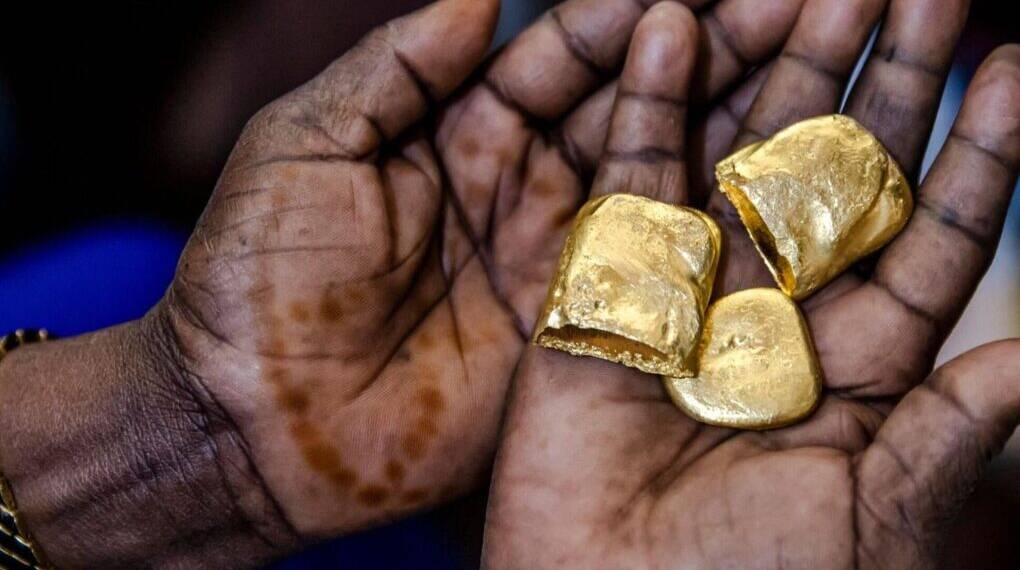Hidden beneath the dazzling surface of record-breaking gold prices in 2025 is a story few investors ever hear—a story of chaos, danger, and survival in West Africa’s goldfields. As the world’s wealthiest scramble for gold as a haven, the true cost of this glittering metal is paid by miners and communities caught in a web of violence and exploitation.
In West Africa, gold isn’t just a commodity—it’s a lifeline, a weapon, and a curse. Here, the rush for riches has unleashed a modern-day gold fever, but instead of prosperity, it’s fueling a shadow economy where armed groups, corrupt officials, and foreign mercenaries battle for control. The gold that fills vaults and jewelry stores worldwide often begins its journey in lawless mines, stained by conflict and hardship.
Most people never stop to ask: Who profits from this gold rush? And at what cost? This is the untold story of “blood gold”—the precious metal that’s turning West Africa’s dreams of wealth into a nightmare of violence and instability.
Also Read: Foreign Western powers looking to break Sahel alliance in Africa.
The Gold Rush in the Sahel
West Africa’s Sahel region—encompassing Burkina Faso, Mali, and Niger—has become a global gold powerhouse. These three countries together produce around 230 tones of gold annually, worth an estimated $15 billion at current prices. The true figure is likely higher, as much artisanal and small-scale gold mining (ASGM) goes unrecorded.
For the military juntas ruling these nations, gold is a lifeline. Facing jihadist insurgencies, regional isolation, and climate shocks, they rely on gold revenues to fund national budgets and military campaigns. Mali, for example, has tripled military spending since 2010, with security now consuming over a fifth of its budget.
Artisanal Mining: The Heart of the Problem
ASGM employs millions: Up to 10 million people across Sub-Saharan Africa rely on informal gold mining, with 3–5 million in West Africa alone.
Dangerous, unregulated, and often illegal: Artisanal miners work in perilous conditions, suffering frequent deadly accidents from tunnel collapses and landslides, especially during the rainy season.
Economic lifeline, but little reward: Despite soaring gold prices, miners’ wages remain stagnant. One miner in Mali’s Kidal region reports earning just $18–36 on a good day, with profits flowing to mine owners and armed groups instead.
How Gold Fuels Conflict?
Revenue for Armed Groups and Militias
Jihadist groups linked to al-Qaeda and Islamic State, such as Jamaat Nusrat al-Islam wal-Muslimin (JNIM), have seized or extorted artisanal mines, using gold profits to fund weapons, recruitment, and territorial expansion. The competition for control of mining sites has intensified violence, with attacks and atrocities committed by both militants and government forces.
State Actors and Foreign Mercenaries
Military governments themselves compete for mining revenues, sometimes paying Russian mercenaries—like the Wagner Group and its successor, Africa Corps—in gold or mining concessions. These arrangements rarely benefit ordinary citizens. Instead, they fuel corruption, empower foreign actors, and perpetuate cycles of violence.
Criminal Networks and Smuggling
Much of the gold mined in the Sahel is smuggled out via porous borders, bypassing government oversight and depriving states of tax revenue. The United Arab Emirates (UAE) is a major destination where gold is refined and enters global supply chains, often without traceability or ethical oversight.
Caught in Crossfire
Villagers near mining sites face violence from both armed groups and heavy-handed government crackdowns. Accusations of collaboration with militants can lead to brutal reprisals.
Miners, including children, work in hazardous conditions for meager pay. Unregulated mining devastates local ecosystems and water sources.
Despite record gold prices, local communities see little benefit. The wealth generated by gold rarely funds development, healthcare, or education.
Also Read: Why Young Africans Are Rallying Behind Traoré?
Why ‘Blood Gold’ Gets Less Attention Than ‘Blood Diamonds’
Unlike “blood diamonds,” which prompted the Kimberley Process and global certification efforts, “blood gold” has not spurred unified action. Gold is smelted early in the value chain, making its origins nearly impossible to trace. There is no equivalent of “DNA testing” for gold nuggets.
The London Bullion Market Association (LBMA) and OECD have guidelines, but enforcement—especially in the UAE—remains inconsistent and largely voluntary. Unlike the Kimberley Process, which targeted non-state armed groups, current gold conflicts often involve governments themselves, complicating international responses.
Way Ahead
Blood gold is now at the heart of West Africa’s conflicts. The region’s gold rush, supercharged by global demand and record prices, has become a source of violence, exploitation, and environmental devastation.
Without urgent, coordinated action from local governments, international bodies, and the global gold industry, gold will continue to enrich a few whiles fueling misery for millions.








